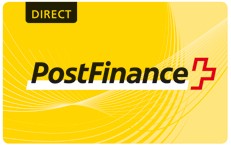What is Incoterms DAP?

DAP is one of the 11 Incoterms standardised in the Incoterms 2011 regulations, it replaces the former Incoterms DDU, DES and DAF since January 2011. DAP stands for “Delivery At Place”. The seller support the cost of delivery to the chosen destination, he also assumes the risk associated with this transport. With the Incoterms DAP the seller must ensure export customs clearance (customs clearance for leaving the country), as for import customs clearance (customs clearance to enter the destination country), as well as any customs taxes, they are paid by the buyer.
Sending in DAP is the solution most often used by e-commerce sites.
In concrete terms, what does DAP mean for the seller?
As a seller, with when you send with the Incoterms DAP, you will have to:
- Organize and pay transportation costs to the destination agreed with the buyer.
- Clear customs on export goods. Don’t worry, the carriers offered on Expedismart.ch will take care of it. And generally, there are no customs duties for export customs clearance.
- Insure the goods for transport risks.
- If you do not use an Expedismart.ch invoice template, you will need to specify the DAP Incoterms in the delivery terms.
The advantage of DAP for the seller is that all costs are known in advance. The transport costs are communicated to you by the carrier and the amount of insurance depends on the value of your goods. (1% of the value of the goods on expedismart.ch)
What are the advantages of DAP.
The great advantage of the DAP is that you know the costs, and you can already include them in the offer you make to the buyer. You can also add any administrative costs for packing and preparing the shipment.
This is not the case with the Incoterms EXW – ExWorks where the seller is exclusively responsible for making the goods available to the carrier (paid for by the buyer), in his warehouse. But in practice the seller will probably have to organise the transport using the buyer’s accounts. This often results in administrative costs that you will not re-invoice to the buyer.
That’s why we recommend the use of this Incoterms. And that’s why DAP is the most widely used Incoterms in e-commerce.
In concrete terms, what does DAP mean for the buyer?
The advantage for the buyer is that he does not arrange the transport of goods that he has not prepared or packed.
Nor does he plan the pick-up at your company, although he does not know the opening hours.
When sending DAP, the buyer must:
- Take care of import customs clearance. Even if the carriers offered by Expedismart.ch carry out customs clearance, sometimes the customs of the destination country ask the recipient for additional information.
- Pay customs fees and taxes.
In a way, it is like buying a good in his country, because the customs fees he will have to pay are mainly VAT.
Who pays the customs fees with the Incoterms DAP?
With the Incoterms DAP, the seller takes care of export customs clearance. This one is exempt from tax. Customs import duties are entirely at the expense of the consignee.
If you do not want the recipient to pay customs duties, you will have to choose the Incoterms DDP.
Example of a DAP shipment.
Goblet SA, based in Freiburg, sells 1,000 glasses to a customer company in Germany for CHF 2,000 (excluding tax). It is agreed that the shipment will be made according to the Incoterms DAP.
In parallel, the administrative assistant prepares a commercial or pro forma invoice with all the necessary information, including the mention in the delivery conditions ; Incoterms 2011: DAP. If Goblet SA uses Expedismart.ch’s invoice templates, the Incoterms will automatically be mentioned according to the one you choose.
When the carrier’s courier, chosen by Goblet SA, picks up the goods, the company gives him the parcels, as well as 3 copies of the commercial or proforma invoice and the Air Waybill received by e-mail.
The carrier will take care of export customs clearance and transport (customs clearance costs are included in the transport price). Once the glasses have arrived in Germany, the carrier will take the administrative steps for customs clearance. If the information on the invoice is not accurate enough or if other documents are required for import, the carrier will ask the consignee for these details.
Once customs clearance has been completed, the carrier delivers the goods to the German customer. The latter only has to pay the customs duties, which consist of VAT (about 20%) and various administrative costs. In this case, probably 450 CHF. (20% of CHF 2’000 + CHF 50 for administrative costs.)
In summary
Goblet SA pays the transport price and CHF 20 of insurance (1% on CHF 2’000)
The German customer pays the import customs duties (approx. 450 CHF) and the SA cup invoice of 2’000 CHF.
Sending in DAP is the solution most often used by e-commerce sites.





